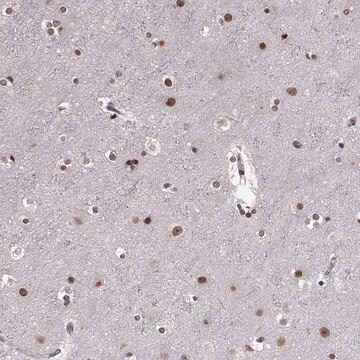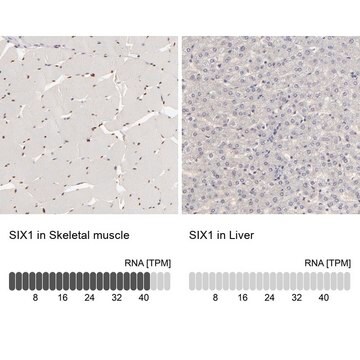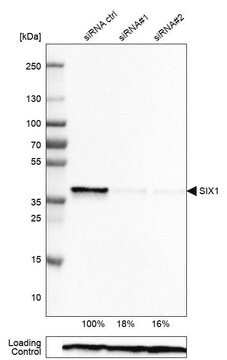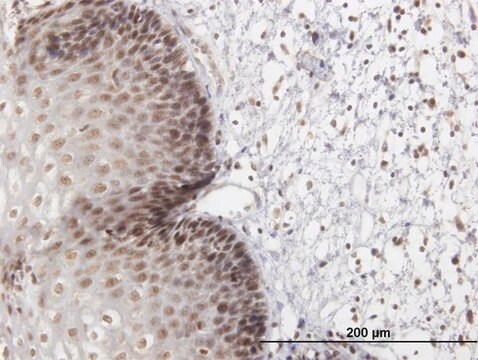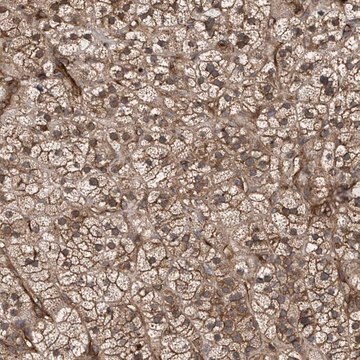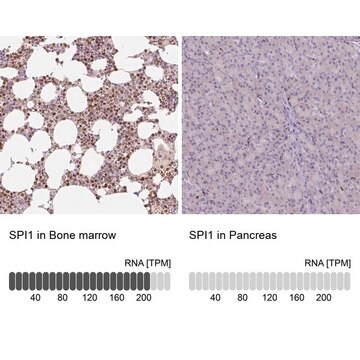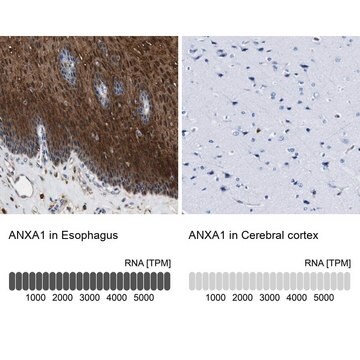SAB1405710
Anti-DFFA antibody produced in mouse
purified immunoglobulin, buffered aqueous solution
Synonym(s):
DFF-45, DFF1, ICAD
About This Item
WB
western blot: 1 μg/mL
Recommended Products
biological source
mouse
Quality Level
conjugate
unconjugated
antibody form
purified immunoglobulin
antibody product type
primary antibodies
clone
polyclonal
form
buffered aqueous solution
mol wt
antigen ~36.5 kDa
species reactivity
human
technique(s)
indirect immunofluorescence: suitable
western blot: 1 μg/mL
NCBI accession no.
UniProt accession no.
shipped in
dry ice
storage temp.
−20°C
target post-translational modification
unmodified
Gene Information
human ... DFFA(1676)
General description
Immunogen
Sequence
MEVTGDAGVPESGEIRTLKPCLLRRNYSREQHGVAASCLEDLRSKACDILAIDKSLTPVTLVLAEDGTIVDDDDYFLCLPSNTKFVALASNEKWAYNNSDGGTAWISQESFDVDETDSGAGLKWKNVARQLKEDLSSIILLSEEDLQMLVDAPCSDLAQELRQSCATVQRLQHTLQQVLDQREEVRQSKQLLQLYLQALEKEGSLLSKQEESKAAFGEEVDAVDTGISRETSSDVALASHILTALREKQAPELSLSSQDLELVTKEDPKALAVALNWDIKKTETVQEACERELALRLQQTQSLHSLRSISASKASPPGDLQNPKRARQDPT
Biochem/physiol Actions
Physical form
Not finding the right product?
Try our Product Selector Tool.
Storage Class
10 - Combustible liquids
wgk_germany
WGK 1
flash_point_f
Not applicable
flash_point_c
Not applicable
Choose from one of the most recent versions:
Certificates of Analysis (COA)
Don't see the Right Version?
If you require a particular version, you can look up a specific certificate by the Lot or Batch number.
Already Own This Product?
Find documentation for the products that you have recently purchased in the Document Library.
Our team of scientists has experience in all areas of research including Life Science, Material Science, Chemical Synthesis, Chromatography, Analytical and many others.
Contact Technical Service